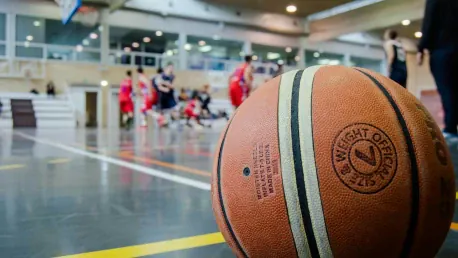What if the thrill of March Madness could be captured not just by the feats of the athletes on the court, but also by the accuracy of artificial intelligence making predictions? The NCAA Men’s Basketball Tournament is known for its unpredictability, with underdogs surprising favorites and buzzer-beaters deciding the fate of teams. So, can AI potentially outperform humans in predicting the outcomes of this high-stakes event?
The Unpredictable Nature of March Madness
Every year, millions of basketball fans eagerly fill out their brackets, hoping to predict the tournament’s outcomes accurately and perhaps achieve the elusive perfect bracket. The excitement lies in the uncertainty, where even the most seasoned analysts can get it wrong. Unexpected upsets and Cinderella stories are not just possibilities but staples of the competition, creating a level of unpredictability that seems inherently resistant to accurate forecasting.
As the tournament progresses, teams that were initially overlooked can gain momentum, shattering predictions and leaving even the most confident fans stunned. This element of surprise fuels the nationwide frenzy around March Madness, making it both a cultural phenomenon and a tantalizing challenge.
Why AI in Sports Predictions Matters
In recent years, there has been a growing curiosity about whether AI can crack the code of March Madness. The broader trend of integrating AI technology into various fields has not missed the world of sports. The allure of potentially outperforming human predictions by using sophisticated algorithms to analyze vast amounts of data is a powerful motivator.
AI’s capabilities in data analysis are expanding, and its application in sports predictions is gaining traction. The idea that an AI could identify patterns and insights invisible to the human eye has captivated the imaginations of both tech enthusiasts and sports fans. The possibility of achieving a level of predictive accuracy that surpasses human efforts is both exciting and daunting.
The Role of AI in Analyzing Data
To test the predictive power of AI, developers trained ChatGPT with extensive basketball data. This included historical trends, team statistics, player performance metrics, and college basketball odds. The AI’s training involved feeding it comprehensive datasets, refining its algorithms, and fine-tuning its predictions based on various parameters.
The AI model was designed to analyze this data, recognize patterns, and make informed predictions. By simulating numerous scenarios and considering countless variables, the AI aimed to provide insights that could potentially lead to more accurate bracket forecasts. The methodological rigor applied in training the AI model was crucial to enhancing its predictive performance.
Evaluating AI’s Predictions and Performance
Upon examining the AI’s output, several notable predictions stood out. One such prediction was Duke winning the championship, a forecast that aligned with the expectations of many human experts. Additionally, the AI projected several upsets, demonstrating its ability to challenge conventional thinking and identify potential anomalies.
Comparing the AI’s accuracy to human predictions revealed mixed results. While the AI successfully identified key trends and accurately predicted many games, it also faced the same unpredictability that challenges human forecasters. Despite its advanced analytical capabilities, the AI could not entirely eliminate the inherent uncertainties of the tournament.
Expert Insights and Anecdotes
AI researchers and sports analysts offer valuable perspectives on the potential and limitations of AI in predicting sports outcomes. According to Dr. Emma Collins, a leading AI researcher, “AI has made significant strides in processing and analyzing vast amounts of data, but predicting events with numerous variables, like sports, remains incredibly challenging.”
Sports analyst Mark Johnson reflects on the AI’s performance, noting, “It’s fascinating to see AI’s capability to provide unique insights and challenge our predictions. However, the excitement of March Madness lies in its unpredictability, which even the most advanced AI finds hard to quantify.”
Practical Applications for Readers
For those interested in leveraging AI for their own bracket predictions, several strategies can enhance the experience. Start by using AI tools to gather insights, but don’t rely solely on their forecasts. Combining AI predictions with traditional methods, such as analyzing team dynamics and player conditions, can provide a more comprehensive approach.
Interpreting AI predictions requires an understanding of their limitations. Recognize that while AI can offer valuable data-driven insights, it cannot account for all the unpredictable variables that influence game outcomes. Using AI as one of multiple resources can help balance the precision of data analysis with the intuitive understanding that comes from following the sport closely.
Conclusion
The exploration of AI’s capabilities in predicting March Madness outcomes has underscored AI’s potential to offer data-driven insights that challenge conventional wisdom. While the AI exhibited impressive accuracy in several predictions, its performance was tempered by the tournament’s inherent unpredictability. Moving forward, the combination of human intuition and advanced AI analysis may provide the most promising path for predicting sports outcomes, balancing data with the unpredictable nature of competition. Ultimately, the ongoing evolution of AI technology will continue to enhance our understanding and approach to predictive analytics in sports.









